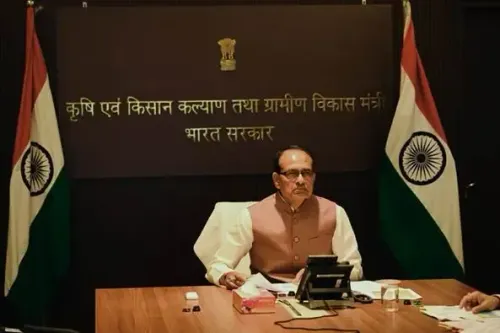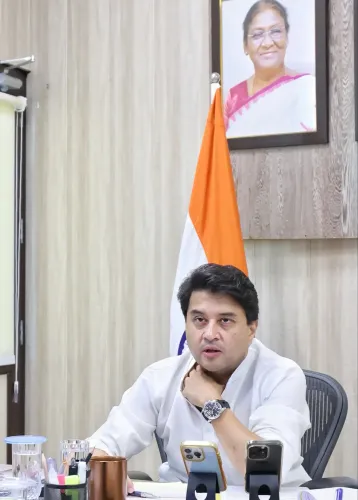Will the India-Chile Economic Pact Enhance Global Value Chains?

Synopsis
Key Takeaways
- CEPA aims to enhance trade relations between India and Chile.
- Negotiations focus on 17 key themes.
- Inter-sessional discussions will prepare for upcoming talks.
- Both nations prioritize economic cooperation.
- Job creation and economic growth are primary goals.
New Delhi, May 31 (NationPress) The Comprehensive Economic Partnership Agreement (CEPA) between India and Chile is set to foster a more profound economic alliance and facilitate the establishment of more robust global value chains between the two nations, according to government officials.
The CEPA is designed to fully harness the potential of the trade and commercial ties between India and Chile, thereby promoting job creation, bilateral trade, and overall economic development.
Negotiation strategies will be shaped through consultations with stakeholders and feedback from industry players. Both countries are dedicated to a constructive and exploratory tactic to ensure a fruitful and significant agreement, as stated by the Commerce Ministry.
In line with commitments made during a high-level dialogue, the framework for negotiating the CEPA was formalized earlier this month.
The inaugural round of negotiations began on May 26, marked by an opening ceremony led by Commerce Secretary Sunil Barthwal, alongside the Ambassador of Chile to India, Juan Angulo.
The subsequent round of talks is anticipated in July or August, and will be preceded by inter-sessional discussions conducted via virtual meetings to preemptively tackle outstanding issues.
The commencement of CEPA negotiations was celebrated by both countries during the recent state visit of Chilean President Gabriel Boric Font to India in April, where he met with Prime Minister Narendra Modi.
President Boric emphasized that India is a key partner for Chile in the global economic landscape and stressed the importance of exploring strategies to diversify and enhance trade.
Both leaders welcomed the start of negotiations aimed at achieving a balanced, ambitious, comprehensive, and mutually advantageous CEPA to facilitate deeper economic integration.
The Chilean delegation included 17 members, while the Indian side was led by Chief Negotiator Vimal Anand, Joint Secretary of the Department of Commerce.
Discussions spanned 17 themes, including Trade in Goods, Trade in Services, Movement of Natural Persons, Rules of Origin, Sanitary and Phytosanitary Measures, Technical Barriers to Trade, Customs Procedures and Trade Facilitation, Initial Provisions and General Definitions, Core and Institutional Provisions, Final Provisions, Transparency, Dispute Settlement, Economic Cooperation, MSMEs, and Women’s Economic Empowerment, among others.









